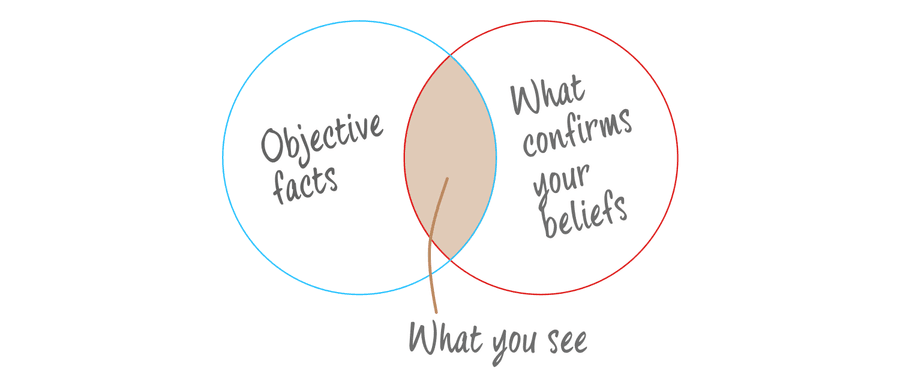The Way We Delude Ourselves
Cognitive Biases are a collection of faulty and illogical ways of thinking which are hardwired in the brain, most of which we aren’t aware of.
The idea of cognitive biases was invented in the 1970s by two social scientists Amos Tversky and Daniel Kahneman, with Kahneman winning the 2002 Nobel Prize in Economics for the same.
265
1.12K reads
CURATED FROM
IDEAS CURATED BY
The idea is part of this collection:
Learn more about problemsolving with this collection
How to create a productive environment
The importance of self-care in productivity
How to avoid distractions
Related collections
Similar ideas to The Way We Delude Ourselves
Behavioral economics
It is a field of study bringing together knowledge from psychology and economics to reveal how real people behave in the real world.
- This is in contrast to the traditional economic view of human behavior, which assumed people always behave in accordance with rational,...
Confirmation Bias: Selective Spotlighting That Is Inevitable
Confirmation bias is a common tendency to self-promote and validate our own beliefs. Most controversial issues have people who are for or against the given topic, and tend to look at points that support their existing belief patterns.
Daniel Kahneman, a Nobel prize winning...
Behavioural Economics
The economic theory of expected utility maximization says that people will act out of rational self-interest. But psychologist Daniel Kahneman showed that it is incorrect.
- Common cognitive biases cause people to use faulty reasoning to make ...
Read & Learn
20x Faster
without
deepstash
with
deepstash
with
deepstash
Personalized microlearning
—
100+ Learning Journeys
—
Access to 200,000+ ideas
—
Access to the mobile app
—
Unlimited idea saving
—
—
Unlimited history
—
—
Unlimited listening to ideas
—
—
Downloading & offline access
—
—
Supercharge your mind with one idea per day
Enter your email and spend 1 minute every day to learn something new.
I agree to receive email updates


